Best clip-on guitar tuners: Top headstock and soundhole tuners to buy right now
Keep your tuning in check in all scenarios with the best clip-on tuners for guitar, bass and ukulele
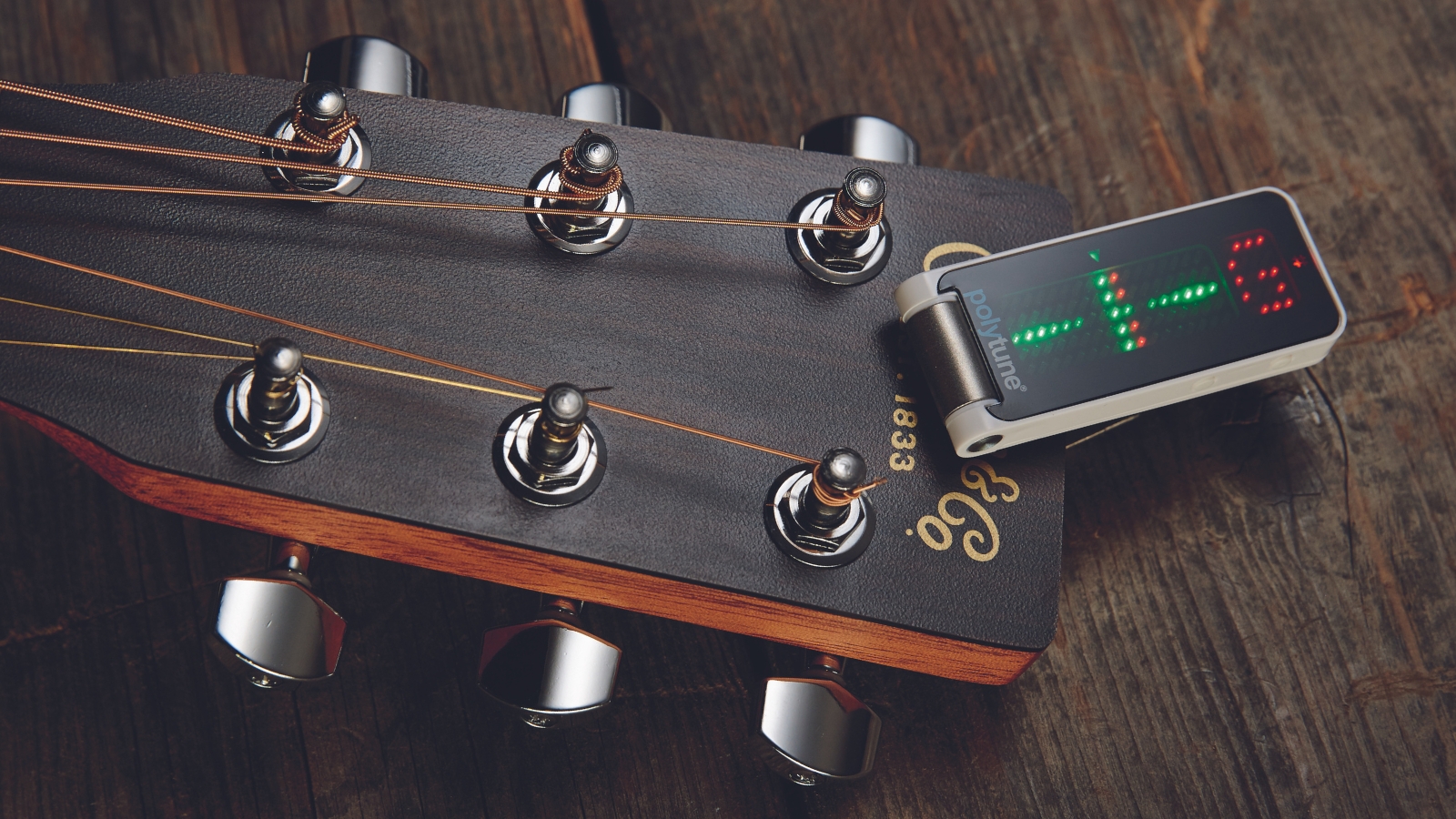
Want all the hottest music and gear news, reviews, deals, features and more, direct to your inbox? Sign up here.
You are now subscribed
Your newsletter sign-up was successful
It may not be the sexiest bit of guitar gear you’ll ever own, but a tuner is a must-have for any serious guitar player. Whether you play electric, acoustic, or bass, an out-of-tune instrument will stick out like a kazoo in a string quartet, which is why you’ll want to grab one of the best clip-on guitar tuners to ensure you stand out for the right reasons.
Clip-on tuners detect the vibrations through your instrument when you strike the strings, which makes them much better than that free phone app when you try to tune up at a show or during a noisy rehearsal. They’re typically attached to your headstock, so they don’t get in the way of your playing, making them a great option for guitarists looking for something lightweight and easy to use.
We’ve put together a huge range of clip-on tuners for you to pick from, no matter what your budget, but if you’re looking at a tuner for the first time, then be sure to check out our FAQs at the bottom of this article. For those who just want to see the top clip-on guitar tuners available today, keep scrolling for our top picks…
Our top picks
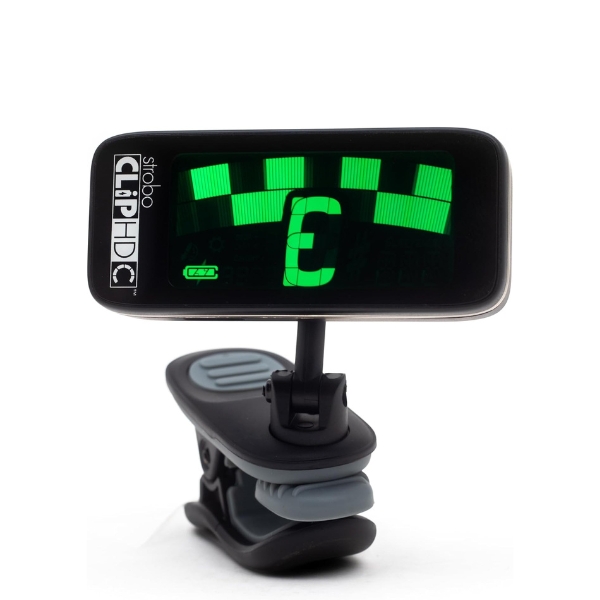
For the overall best clip-on tuner, we’ve gone for the Peterson Stroboclip HD. It’s accurate to an amazing 0.1 cents, robustly built, and features a bright, easily readable LED display. It’s not the cheapest tuner out there, but we think it’s well worth the money to have something top-quality that will stand the test of time.
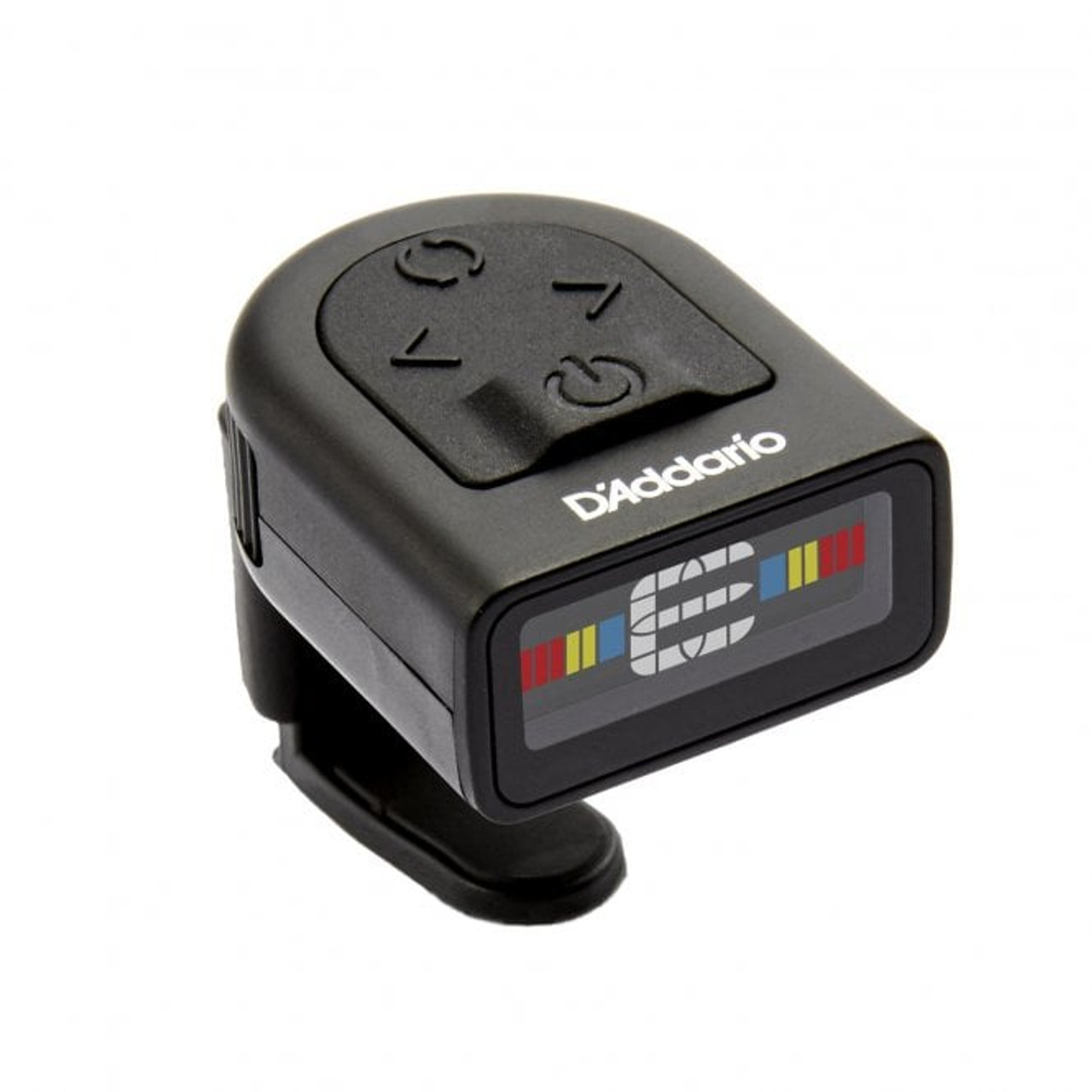
If you like to keep your tuning on the down low or want something lightweight on your headstock, have a look at the D’Addario NS Micro Tuner. It’s small, but the display is bright and easily readable, whilst the price puts it within reach of the majority of guitar players.
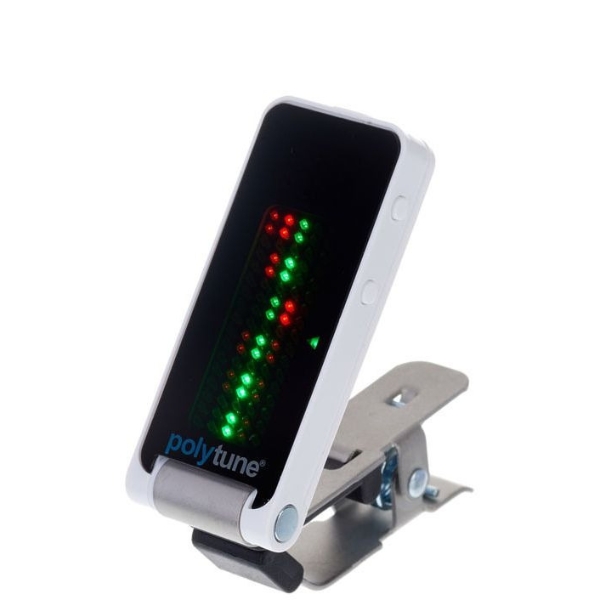
TC Electronic turned heads (and ears) when it unveiled its PolyTune pedal in 2010, five years later the Clip continued that good work, and it remains a popular option for players with impressive +/- 0.02 cents accuracy in strobe mode and 0.5 cents in chromatic mode.
Best overall
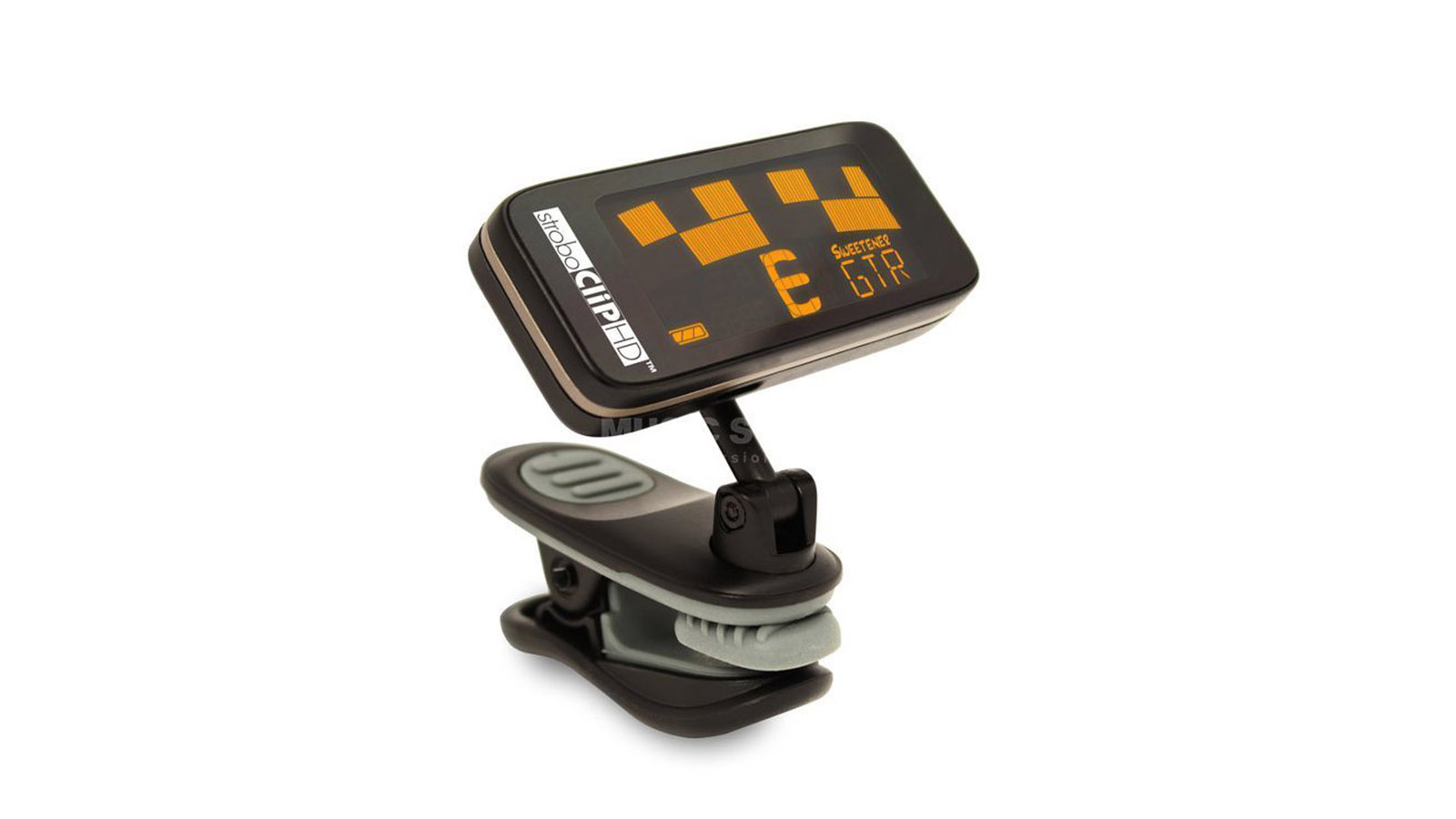
1. Peterson StroboClip HD
Our expert review:
Specifications
Reasons to buy
Reasons to avoid
The 0.1 cents accuracy of the StroboClip HD is unrivalled in the clip-on tuner field, so if it has to be perfect, this should be top of the list. Peterson has a great reputation in the industry for build, feature and accuracy; the StroboClip HS delivers on all three fronts.
The large HD screen is an attractive proposition and with the amount of features on offer here, you'll need it to keep track of things. In addition to settings to accommodate drop tunings and the use of a capo, Peterson offers over 50 of its 'sweetened tunings' to allow players to access custom tuning presets to accommodate types of instrument (including a specific preset for acoustic guitar) and even the types of chords you may be playing - such as a bias to making major or minor chords intonate better.
Best discreet
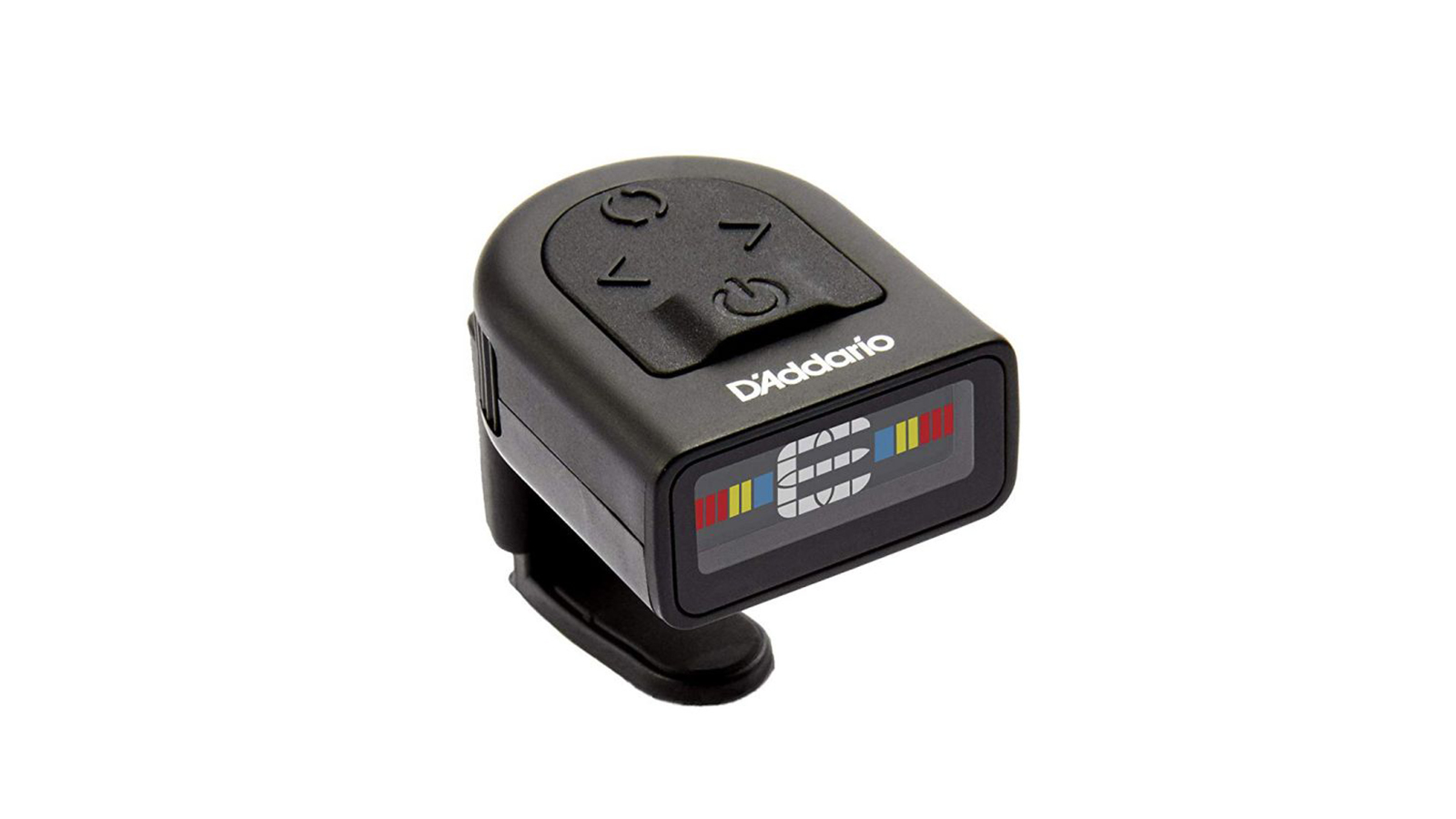
Specifications
Reasons to buy
Reasons to avoid
We all want to keep our guitars looking good, so the small size of the NS Micro Tuner doesn't get in the way of that. But it also offers everything you need from a clip-on guitar tuner.
Its screen can rotate 360 degrees and works effectively at the front or rear of your headstock to be even more discrete. It doesn't scrimp on features either with various calibration modes and a visual metronome. Moreover, it's sensitive response will make it a go-to accessory you'll use everyday.
Whether you're using the D'Addario NS Micro Tuner with an electric, acoustic or bass guitar and any other stringed instrument, it's easy to fit and keep as a permanent fixture in your playing life.
Read the full D'Addario NS Micro Tuner review
Best display
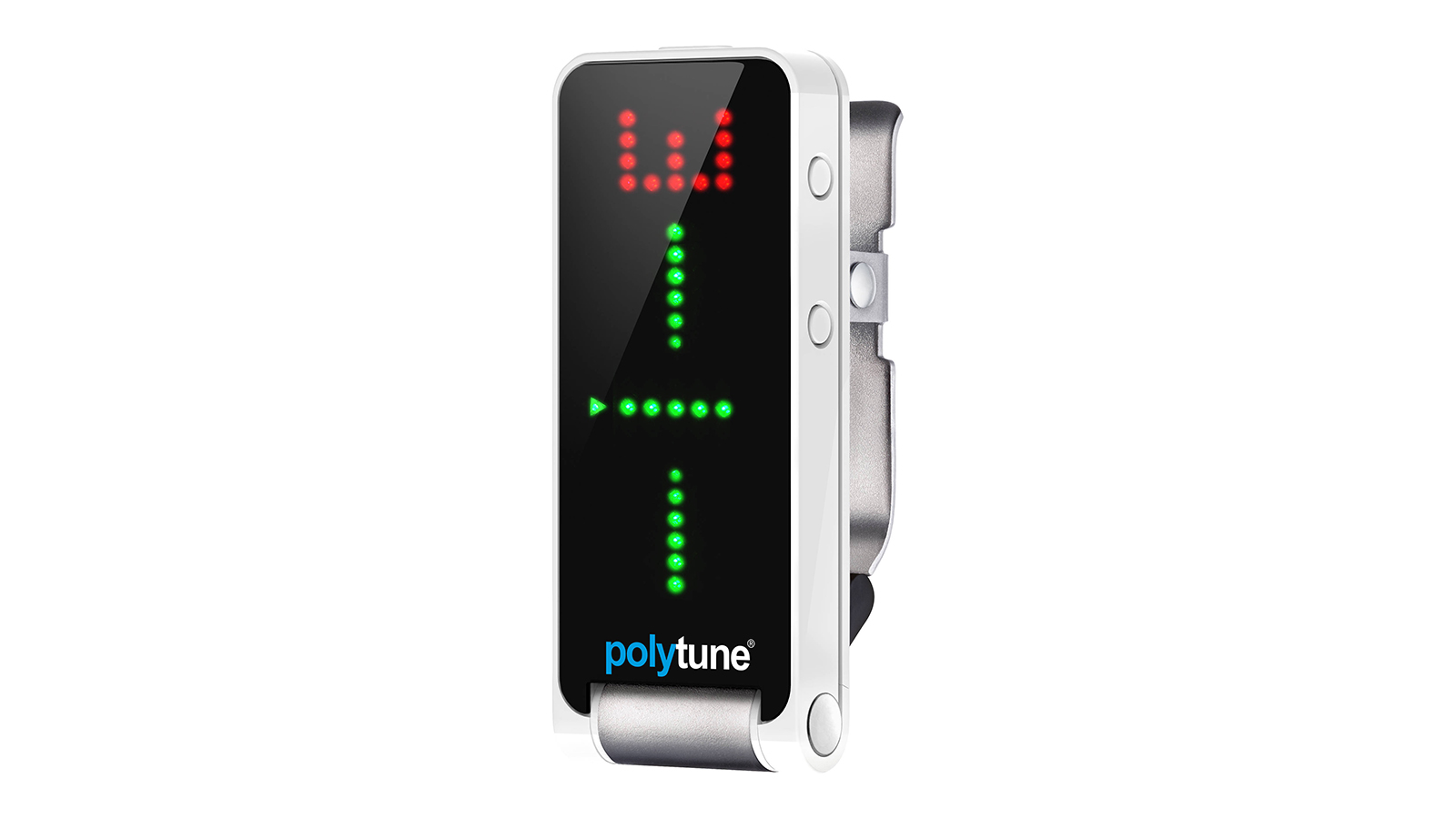
Specifications
Reasons to buy
Reasons to avoid
TC Electronic turned heads (and ears) when it unveiled its PolyTune pedal in 2010, five years later the Clip continued that good work and it remains a popular option for players with impressive +/- 0.02 cents accuracy in strobe mode and 0.5 cents in chromatic mode.
This is combined with a clear and vibrant LED screen and the polyphonic functionality will reveal which of your strings are in and out of tune by simply strumming your strings.
Another handy feature is auto orientation; if you're left-handed or use the PolyTune Clip at the back of your headstock, the display flips accordingly. But we found the polyphonic accuracy a little hit and miss at times in comparison with the pedal version (it will sometimes say your tuning is out when the chromatic mode says it's in tune) .
The larger size of the Clip also won't be for everyone, but with its two different tuning modes and bright display, this will suit many players.
Read the full TC Electronic Polytune Clip review
Best on a budget
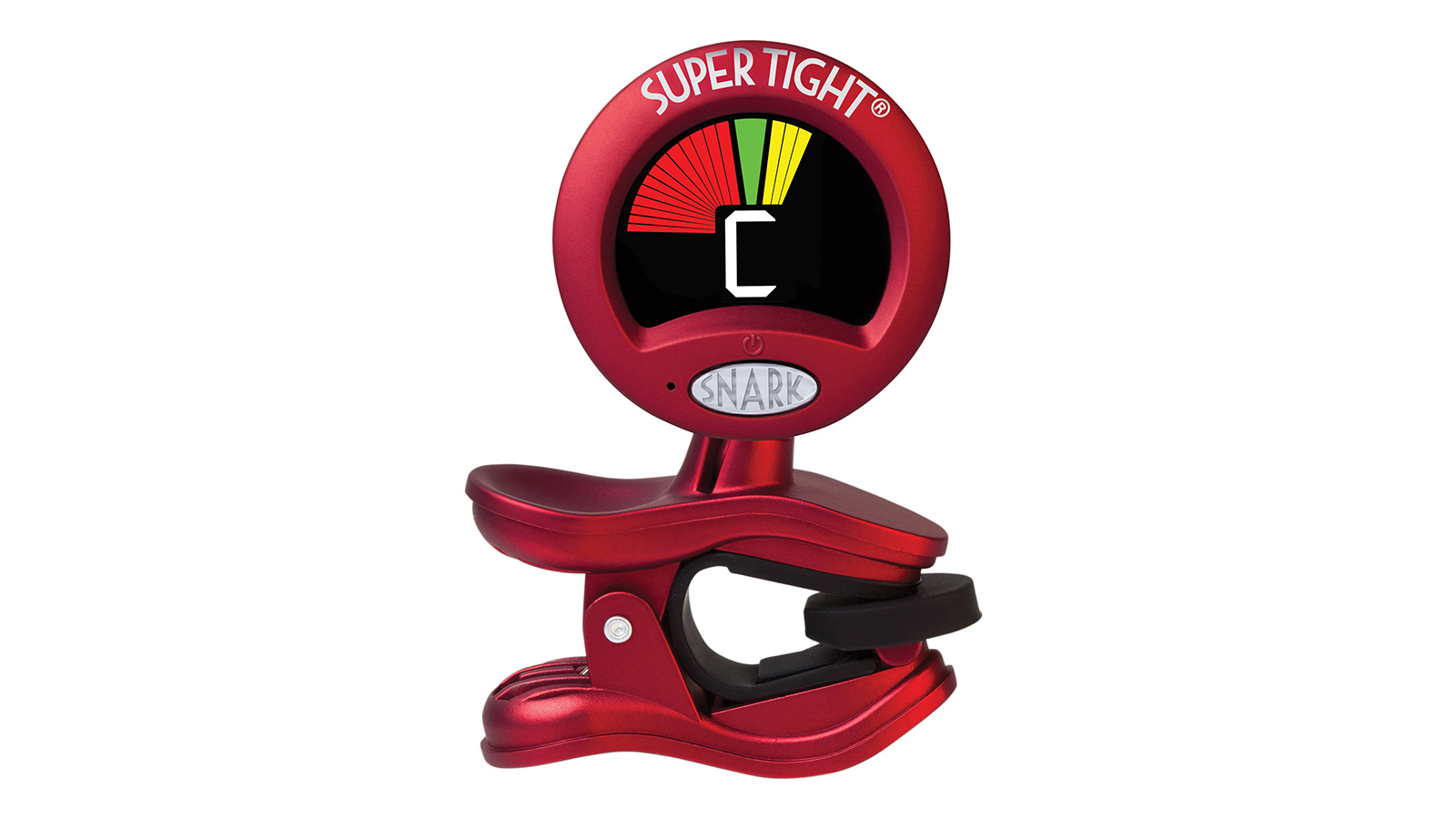
4. Snark ST-2 Super Tight
Our expert review:
Specifications
Reasons to buy
Reasons to avoid
Snark has long been a name to trust when it comes to guitar tuners and the ST-2 is a no-frills, reliable approach that should please a lot of players.
Though its accuracy isn't stated in specs, we found performance was good with swift tracking. You can choose between a mic or vibration sensor with the former a preferred option for acoustic instruments in quiet surroundings, while vibration is practical in noisier locations, and with electric guitars and basses.
The screen is bright, easy to read and angled for good visibility – and with instrument design varying, this offers flexibility that's very welcome at an affordable price.
Best for accuracy
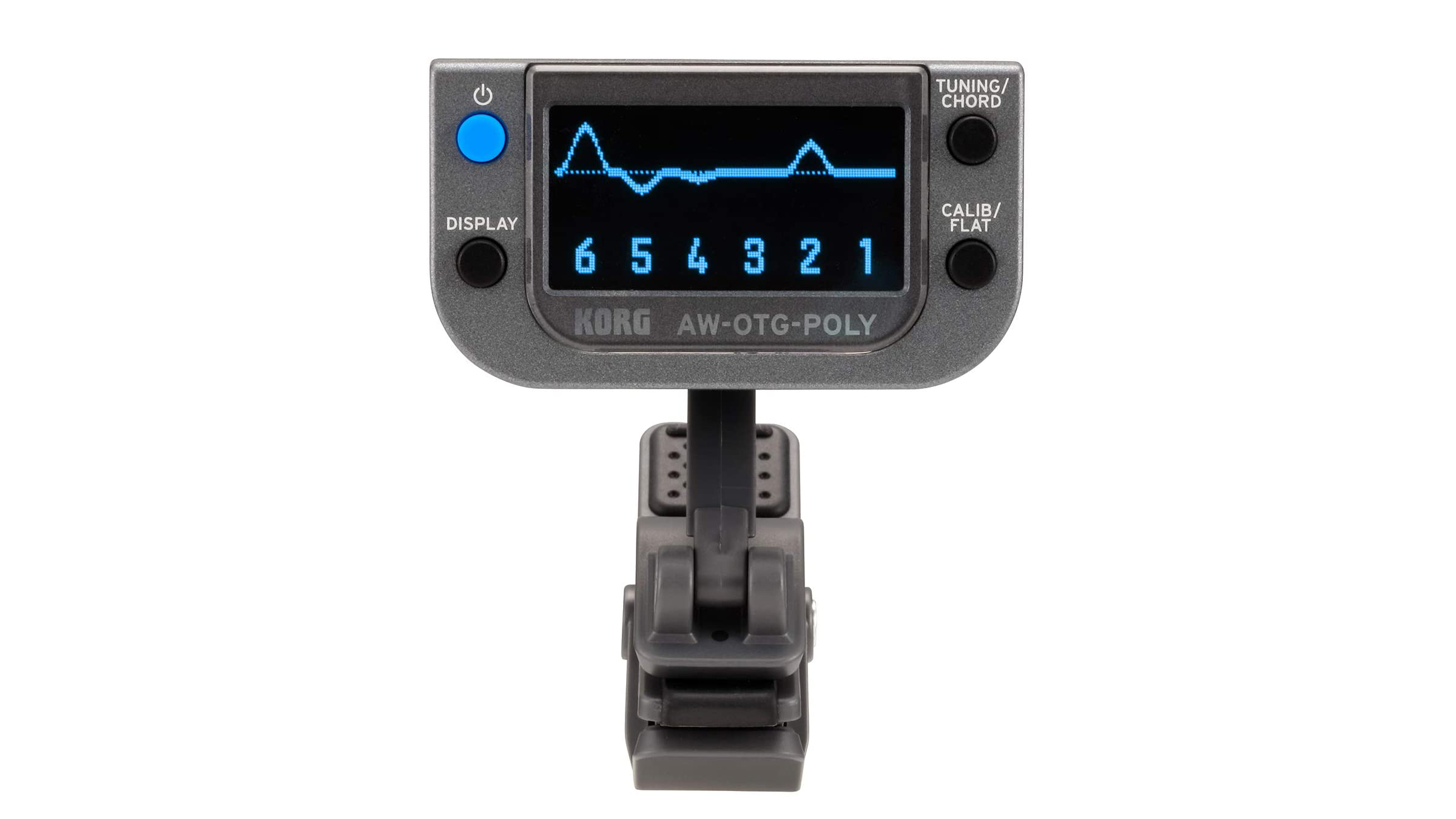
5. Korg AW-OTG-POLY Clip-On Tuner
Our expert review:
Specifications
Reasons to buy
Reasons to avoid
You might be surprised to find just how many guitar tuners Korg now offers – but this has to be the most impressively featured of its clip-on models. The OLED screen here and 11 tuning animations are a sign of the premium quality – and there's more.
The +/-0.1 cent tuning accuracy puts this in the pro-level category of headstock guitar tuners, and it offers memory backup for your settings. But it's fun too to brighten up the often mundane task of tuning with animations featuring cats and taps if you want a break from needle and strobe modes.
In addition to the polyphonic tuning, there's a chord finder feature here; it will tell you the chord you're playing and even works with a capo up the 7th fret. Neat!
Best for acoustic
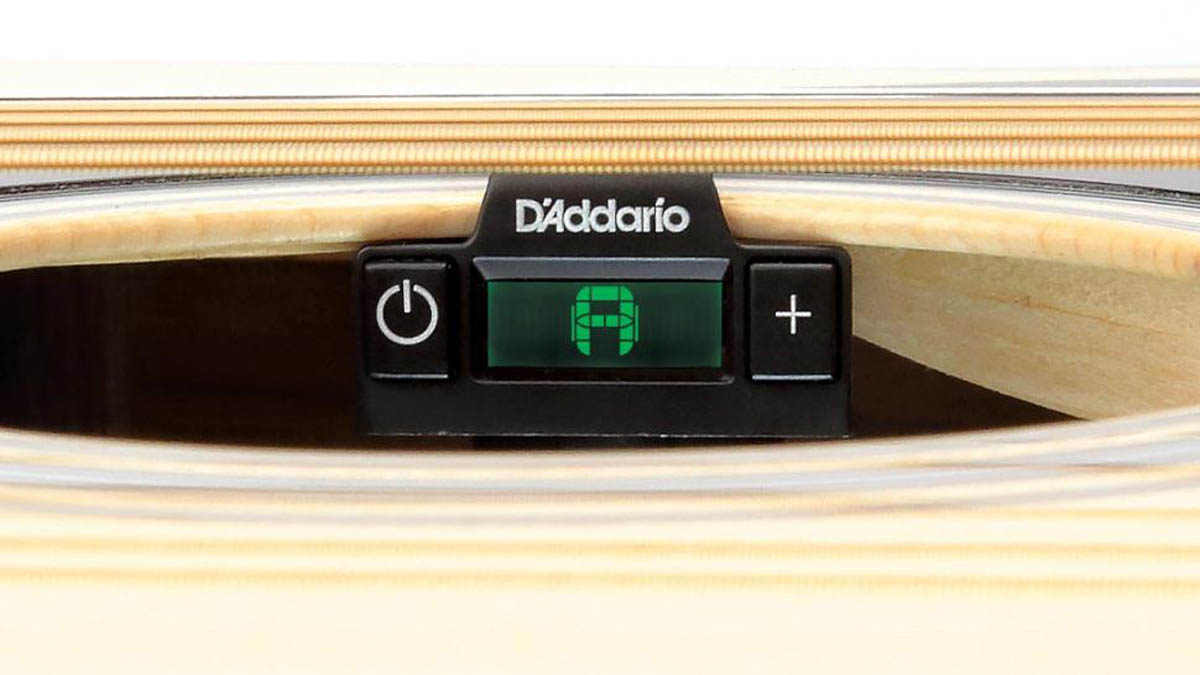
6. D'Addario PW-CT-15 NS Micro Soundhole Tuner
Our expert review:
Specifications
Reasons to buy
Reasons to avoid
Something different here – and specifically for acoustic guitar players as this NS Micro series tuner fits on the rim of your soundhole, placing the tuner inside the body but still readable. It's so out of the way you can just leave it fitted on your guitar permanently.
It works really well and the accuracy for the price here is even better news – to 0.3 cents with calibration between 434 and 445Hz. There's no reason you can't fit it on other stringed acoustic instruments (though D'Addario offer the PW-CT-NS specifically for ukulele players) .
Glossary of terms
New to clip-on guitar tuners? Well, here are some of the key terms you should know about these handy tuning devices.
Accuracy: The degree to which a tuner can correctly identify the pitch of a note. Higher accuracy means the tuner can detect subtle differences in pitch, ensuring precise tuning. Most digital tuners aim for an accuracy of ±1 cent.
Calibration: The process of setting the tuner to recognise specific pitches or reference tuning frequencies, often A440 (440 Hz).
Chromatic tuner: A tuner that can recognise all twelve pitches in an octave, allowing for more flexible tuning options.
Clip-on tuner: A small device that attaches to the headstock of a guitar. It senses the pitch of the strings through vibrations and helps you tune the instrument.
Display: The part of the tuner that shows the pitch being played and whether it’s in tune, usually with a needle or LED lights.
Flat: When a note is lower in pitch than it should be.
Pitch: The perceived frequency of a sound, relating to how high or low a note sounds.
Polyphonic tuner: A tuner that can detect and display multiple notes played simultaneously, making it especially useful for tuning multi-string instruments, like guitars and pianos, without having to play each string individually.
Sharp: When a note is higher in pitch than it should be.
Strobe tuner: A type of tuner that uses a strobe light to visually display the pitch of a note. It provides highly accurate tuning and allows for adjustments to be made in real-time based on how the strobe light appears to move.
Tuning: The process of adjusting the strings of the instrument to reach the desired pitches.
How to choose
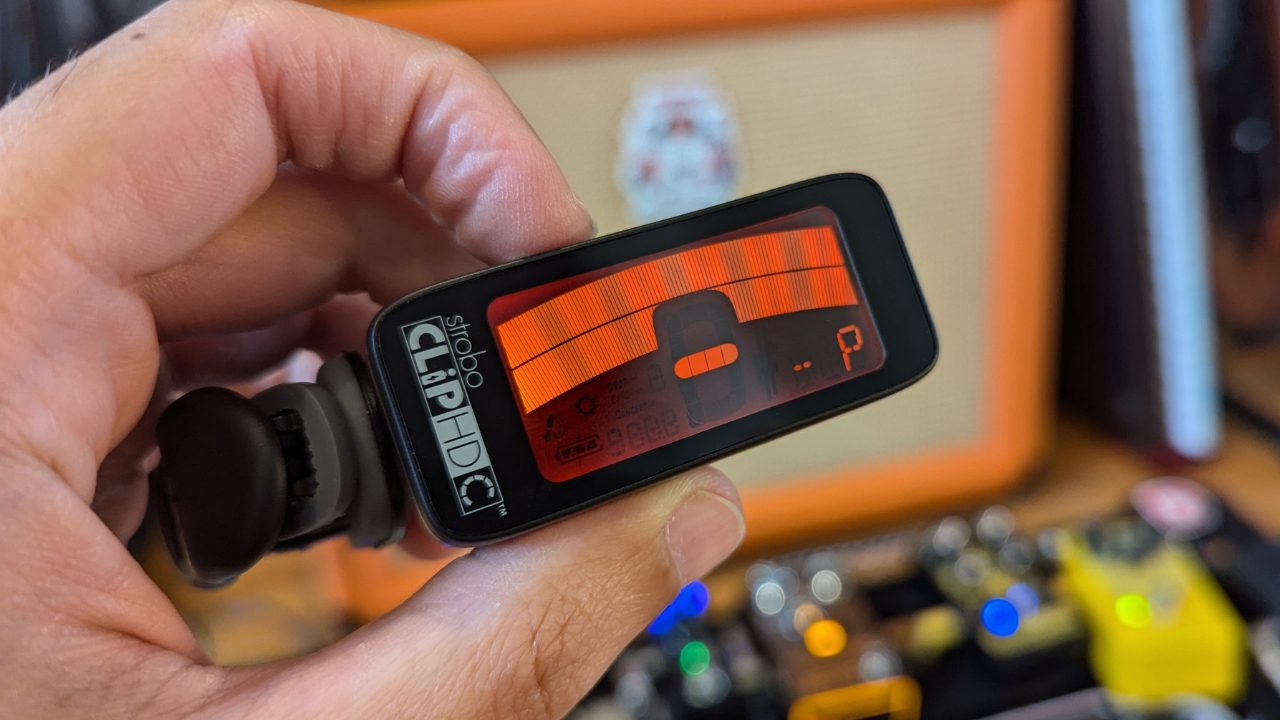
With so many clip-on tuners on the market, all at various price points, it can be daunting to know which model is right for you. Well, don't worry, MusicRadar is here to help. Below are some key factors to consider when selecting the best clip-on tuner for your needs.
Accuracy: Look for a tuner that offers high precision. Many models display pitch in cents, allowing you to see how close you are to being in tune. A tuner with an accuracy of ±1 cent is ideal.
Display: The visibility of the display is crucial, especially in various lighting conditions, such as a dark stage. Choose a tuner with a bright, easy-to-read screen. Some tuners feature a colour display or backlighting, which can be helpful for outdoor performances.
Ease of use: Opt for a tuner that is straightforward to navigate. A user-friendly interface will save you time and frustration.
Battery life: Battery longevity can vary between models. A tuner with a longer battery life means fewer replacement batteries.
Build quality: A sturdy, well-made tuner will withstand the rigours of travel and regular use. Look for one with a good clamp and a durable design.
Got more queries? Well, below we've answered some of the most commonly asked questions surrounding clip-on guitar tuners.
FAQs
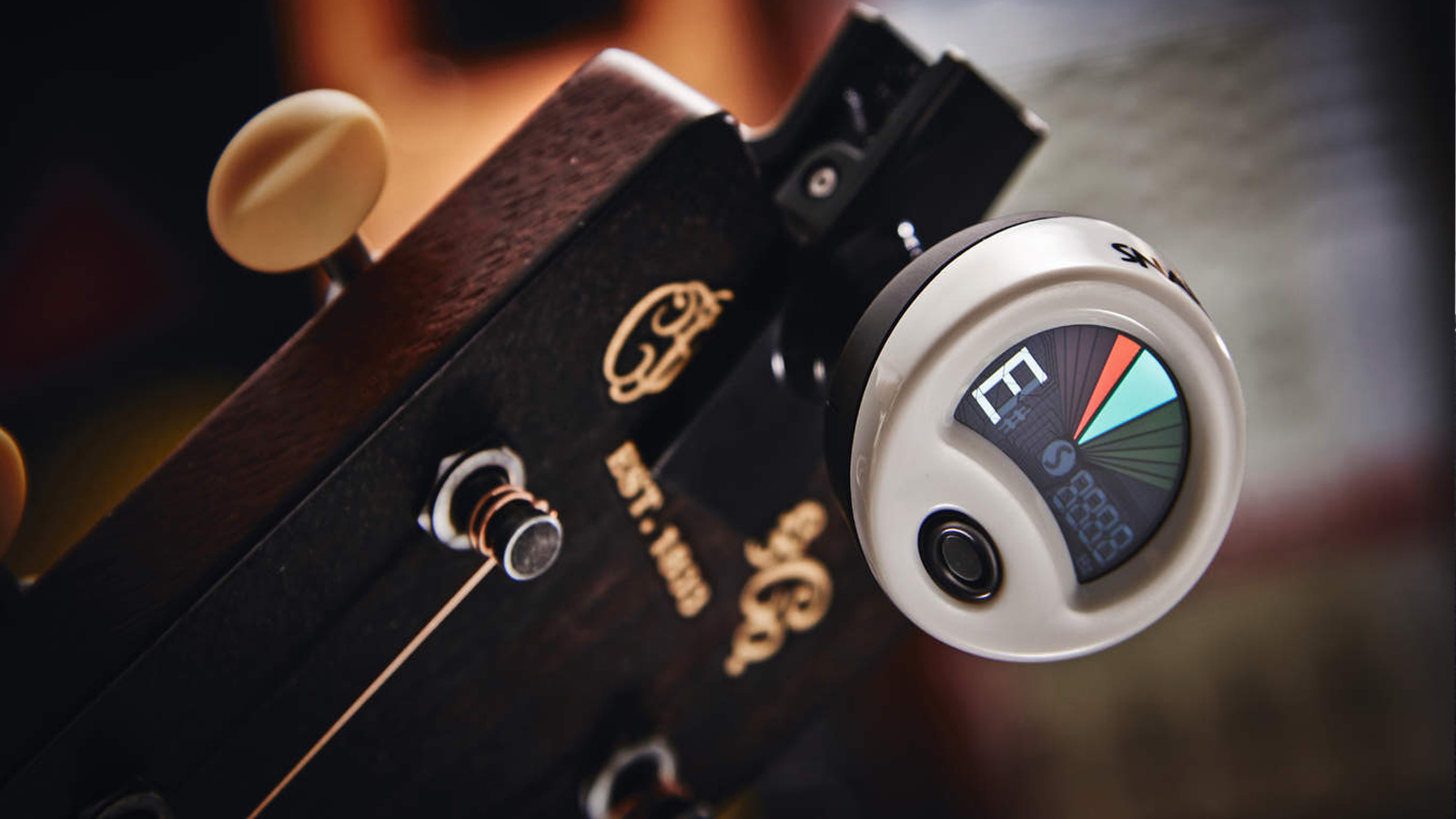
What are the types of clip-on tuner?
There are a few different types of clip-on tuner too, so when you see these phrases being used, you’ll know what they mean.
A chromatic tuner means that it will detect any note being played. In western music, there are 12 notes; of course for all of these you can be either sharp (higher in pitch), or flat (lower in pitch), but a chromatic tuner will tell you which note you’re closest to and how far off you are.
Polyphonic tuners can detect more than one string at once. As technology has improved, manufacturers have been able to make tuners that can track multiple strings being played at once more accurately. Now, some of the best clip-on tuners out there can show you where all six of your guitar strings are tuning-wise, so it’s easy to detect which, if any, need adjusting.
Strobe tuners refer to the way in which the display will read the note back to you. Lights on the tuner’s screen will move quickly when your string is out of tune and gradually get slower as you approach the note. These tend to be very reactive to your tuning pegs, so small adjustments will make all the difference here. They’re very accurate and allow for super precise tuning.
Are clip-on tuners more accurate?
In a perfectly quiet environment with no extraneous noise, a clip-on tuner can be incredibly accurate. Compared to a phone app or a tuner that uses a microphone, clip-on tuners are far more effective than these. That said, a clip-on tuner won’t be as effective as a guitar tuner pedal, as they will still be susceptible to certain loud noises, like when your bassist really cranks their amp for example.
For guitarists playing at home, or those who perhaps only do acoustic or solo gigs, however, a clip-on tuner is perfect for these types of situations. We’ve seen a lot of guitarists use clip-on tuners at gigs as well, although in some cases you may have to ask your bassist or drummer to be mindful when you’re tuning up!
Are clip-on tuners good for bass?
Yes, a good clip-on tuner will work fine on bass guitar. Cheaper models may struggle to detect the low vibrations of a bass but if you buy a good quality one then you shouldn’t have any issues. As with any kind of clip-on tuner, extraneous noise can cause issues, but plenty of clip-on tuners have dedicated modes for tuning bass guitars.
How we choose the best clip-on tuners
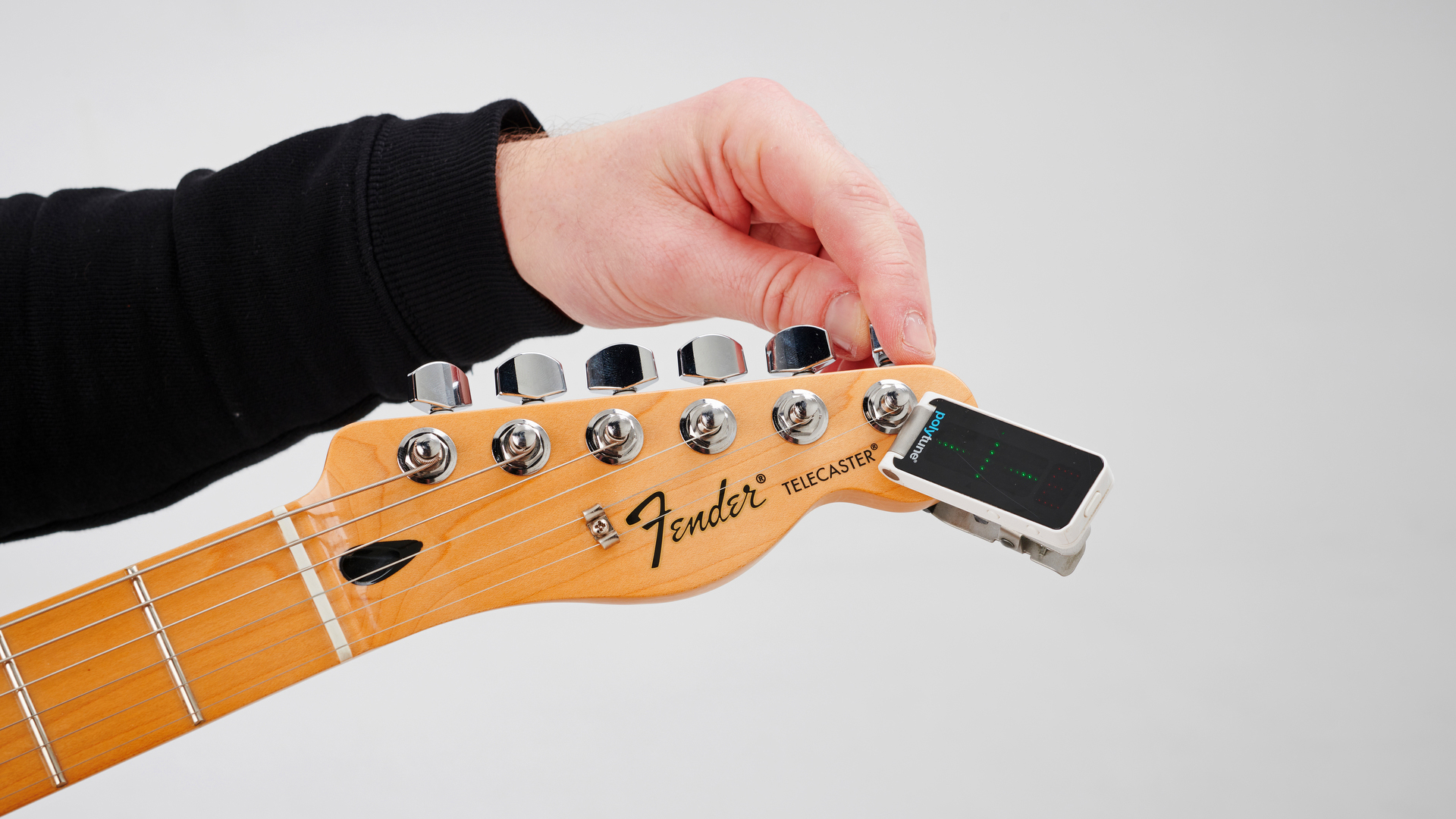
At MusicRadar, we understand the importance of having a reliable and accurate tuner to keep your guitar in perfect tune. With our dedication to helping guitarists find the best gear, we have extensively researched and tested numerous clip-on guitar tuners to identify the top options available.
To compile our list of the best clip-on guitar tuners, we combine our expertise, meticulous research, and insightful discussions with our editorial team. We consider factors such as tuning accuracy, ease of use, display quality, durability, and value for money, ensuring that we showcase the finest clip-on tuners on the market.
As guitarists ourselves, we know that a well-tuned instrument is the foundation of great playing and enjoyable music-making. Whether you're performing on stage, practicing at home, or jamming with friends, our goal is to provide reliable and informed recommendations that help you find the perfect clip-on guitar tuner to keep your instrument in tune with ease.
Find out more about how we test music gear and services at MusicRadar.
Why trust us?

☑️ MusicRadar established 2007
☑️ Over 5,000 reviews on-site
☑️ 2.9M average monthly users
MusicRadar first launched in 2007 and has been an authority on guitar accessories ever since. The site is run by a diverse team of passionate musicians who live to gig, record and jam, alongside a core group of trusted specialist freelance writers. We understands what players need, because we’re players ourselves, and we test from this perspective.
Our team have been testing music gear for 18+ years, constantly refining our methodology, delving deeper into products and drawing on our experience of what has come before to understand today’s products better than anyone.
Related buyer's guides
MusicRadar's got your back
- The best overdrive pedals for guitarists
- You might need one of the best pedalboards
- The best acoustic guitar strings in the world right now
- The best electric guitar strings you can buy
- Check out the best electric guitars around
- Explore the best acoustic guitars money can buy
- Earn your freedom with the best guitar wireless systems
- Undecided? These are the best guitar effects pedals in all categories
Want all the hottest music and gear news, reviews, deals, features and more, direct to your inbox? Sign up here.
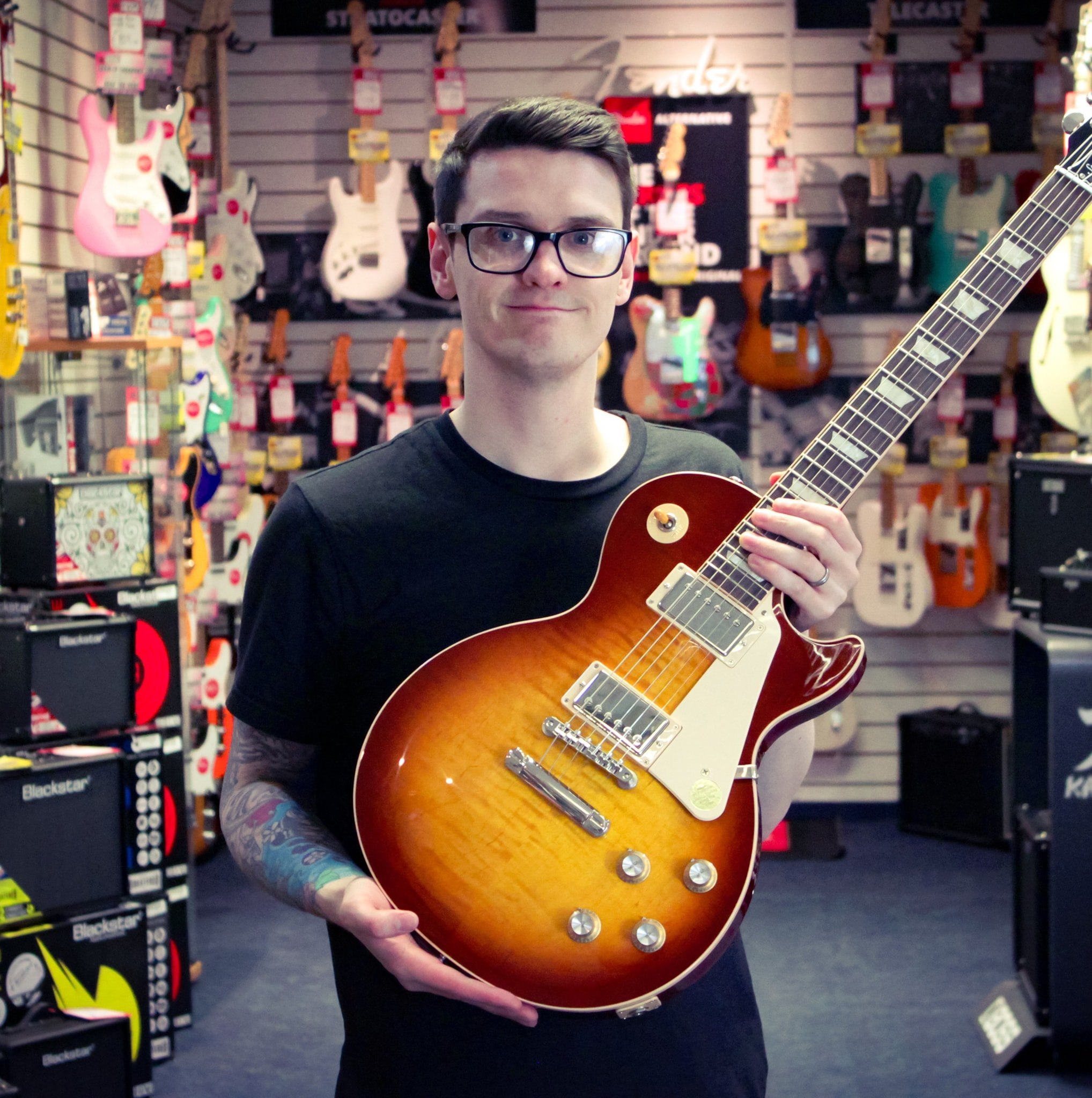
I'm a Senior Deals Writer at MusicRadar, and I'm responsible for writing and maintaining buyer's guides on the site. As part of my role, I also scour the internet for the best deals I can find on gear and get hands-on with the products for reviews. My gear reviews have been published in prominent publications, including Total Guitar, Guitarist, and Future Music, as well as Guitar World.com. I've also had the privilege of interviewing everyone from Slash to Yungblud, as well as members of Sum 41, Foo Fighters, The Offspring, and many more.
In a previous life, I worked in music retail, selling everything from digital pianos to electric guitars. I'm also a fully qualified sound engineer who holds a first-class Bachelor's degree in Creative Sound Production from the University of Abertay.
- Richard Blenkinsop
- Matt McCrackenJunior Deals Writer